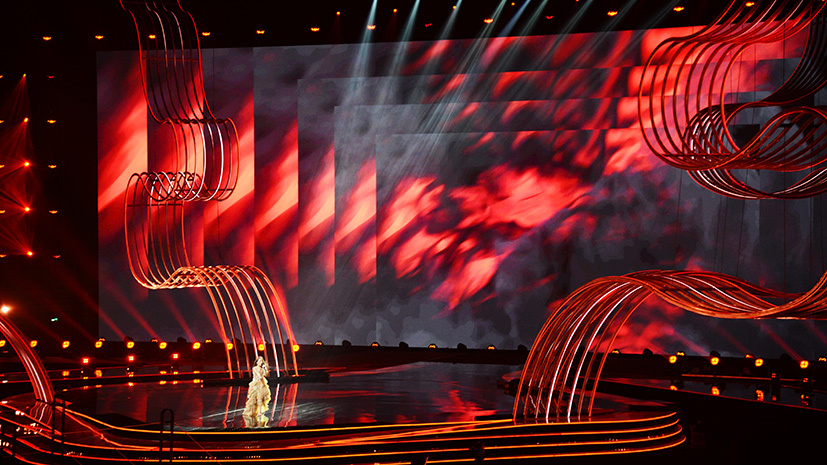On November 24, the results of one of the most prestigious vocal competitions in Europe for children and adolescents - "Junior Eurovision-2019" were summed up. Participants from 19 countries (including Australia) fought for the victory.
As in the past year, the winner is 50% determined by the decision of the professional jury and 50% by spectator voting. But there are innovations: this year, viewers had to vote for at least three participants, and a maximum of five. At the same time, for the first time in the history of the contest, it was possible to support a contestant from their country.
According to the results of the audience and the professional jury, the victory went to Vicky Gabor from Poland, who performed the song Superhero. The maximum 166 points from the audience, thanks to which the singer scored 278 points, ensured her first place.
The winner of # JESC2019 is POLAND! 🏆🇵🇱
Congratulations Viki Gabor! You're a SUPERHERO! 🦸♀️ # ShareTheJoypic.twitter.com / nf7DUFBwLb
Maxim Yerzhan from Kazakhstan became the vice-champion with a composition in English and Kazakh languages Armanyńnan Qalma. The support of the jury from different countries - including the Netherlands, Ukraine, Poland and British Wales - ensured the finalist of the children's “Voice” a landslide victory in the first stage.
Third place went to Melanie Garcia from Spain. The young singer belongs, perhaps, the highest voice of Eurovision-2019. In the song Marte, she demonstrated a wide range and serious musical preparedness.
Russia this year was represented by Tatyana Mezhentseva and Denberel Oorzhak - the only duet in this year's competition. They performed with the song “Time For Us” (A Time For Us). The 9-year-old singer herself (by the way, the youngest at the 17th Eurovision) participated in the spelling.
The guys performed a song in Russian with a chorus in English. The directors of the performance made a bet exclusively on the vocals of the contestants - there was no dancing or additional scenery on the stage. The combination of Tanya’s sonorous, high timbre and Denberel’s low, almost adult voice sounded very harmonious. According to the voting results, the duo scored 72 points and took 13th place.
One of the most striking was the performance of Lisa Misnikova from Belarus with the song "Ash": the singer appeared on the stage in a vivid image from the 90s, and the dance group and the video sequence in the anime style created the full picture. The participant took 11th place.
Interestingly, the main theme of the competition was environmental protection - one way or another, most of the performers addressed it in their songs.
- Matthew (Netherlands)
- © Alexey Vitvitsky / RIA News
The hosts of Eurovision-2019 were Ida Novakovska, Alexander Sikora and Roksana Vegel. For Russian viewers, the contest was covered by Lera Kudryavtseva, as well as the presenters of the project “You are super!” Vadim Takmenev and Anastasia Pak.
Russian sound
Denberel Oorzhak - champion of the project “You are super!” And the contest “Children's New Wave”. During the last, he met Tatyana Mezhentseva.
Shortly before her trip to Poland, Tatyana and Denberel gave an interview to RT, in which they talked about the relationship in their duet and preparation for the competition.
On November 20, media reported that Oorzhak became ill during the first rehearsal on stage in Poland.
“The boy was seriously preparing for the upcoming contest and was too worried at the crucial moment,” RIA Novosti was told in the press service of the Igor Krutoy Academy.
Later it became known that during this rehearsal, Denberel fainted. Immediately after the incident, the boy was hospitalized, but the next day he was already discharged from the hospital. Doctors recommended the artist peace.
According to the singer, his health problems arose due to excessive excitement. “I realized that you should not worry so much, and that everything will be fine,” RIA Novosti quoted Oorzhak as saying.
During the finale, the ear monitors turned off on stage and Denberel did not hear his own voice as needed. However, being on stage, the vocalist did not let the audience suspect that he was experiencing any difficulties.
History of high-profile victories
The first Junior Eurovision Song Contest was held in the capital of Denmark, Copenhagen, in 2003. It was organized on the basis of the music festival for young performers Melodi Grand Prix Nordic.
- Daria Vrachevich (Serbia)
- © Alexey Vitvitsky / RIA News
At the first competitions, the winner was determined by the vote of viewers, in 2008, the votes of viewers and the national jury were taken into account. Then the remote voting was completely removed, but the year before last they returned to the second option: the result equally depends on the audience’s sympathies and the jury’s assessment from different countries.
Russian participants won Eurovision twice: it was a duet of the Tolmachev sisters in 2006 and Polina Bogussevich in 2017. Like some other participants, Maria and Anastasia Tolmachev later took part in Eurovision for adult performers (over 16 years old).

